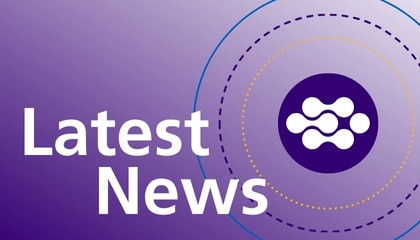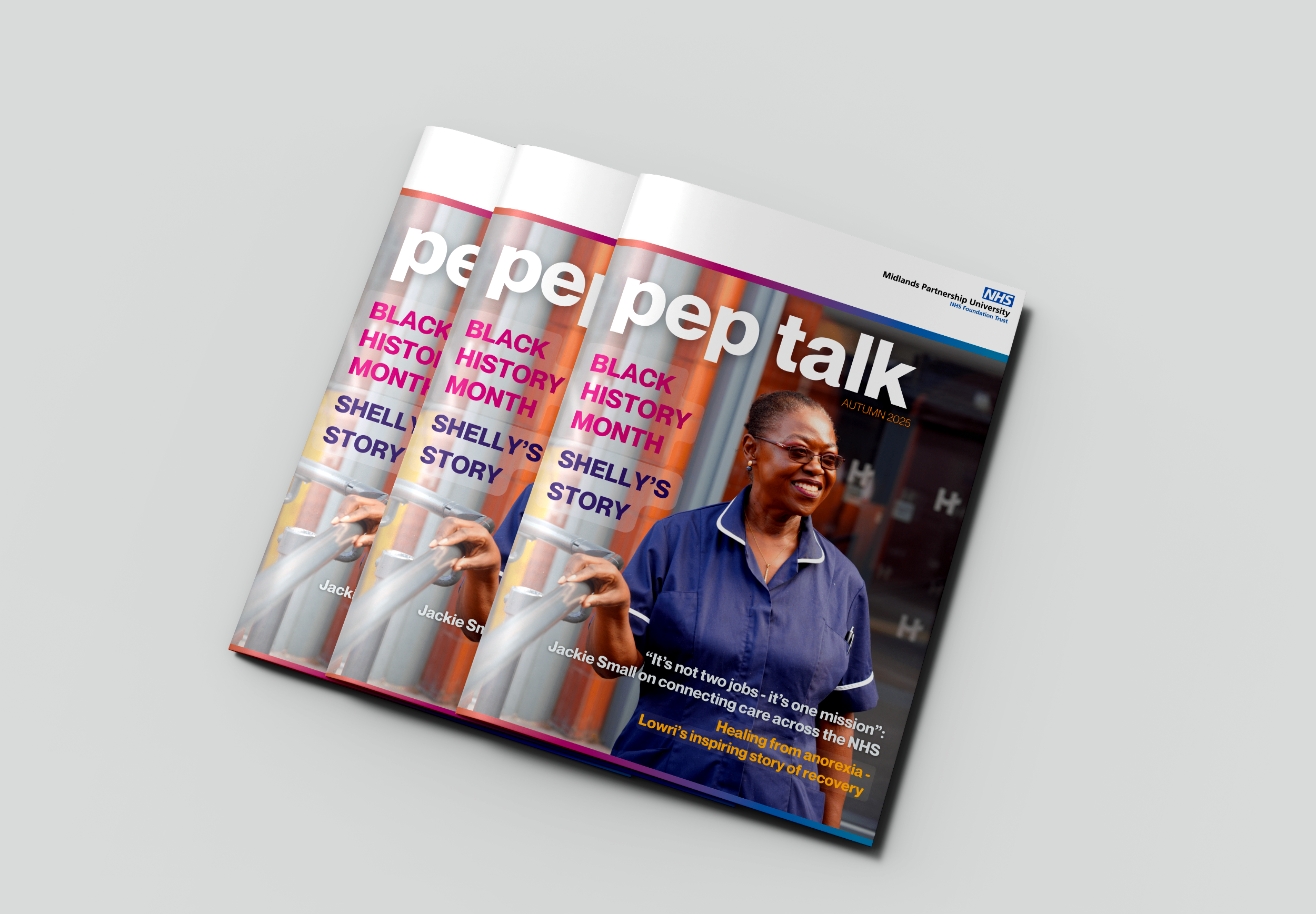At MPFT, we have committed to being an actively anti‑racist organisation. We recognise that racism - whether in policies, institutions, or everyday interactions - is a fundamental injustice that negatively impacts our patients, staff, and community. Our focus is on dismantling discriminatory systems and practices so that every person, regardless of their race, can receive fair and high‑quality care and work in an environment free from bias. We are determined to create a fair, safe, and inclusive environment for all by confronting racism at its core.
You can read the document here - Anti Racist Statement and Framework
Our strategy for Equity, Diversity, Inclusion and Belonging (EDIB) Strategy 2024-29 builds on what we have already achieved and commits to actively address health inequalities among our staff, patients and communities with genuine purpose and tangible actions. It has been developed from listening to our staff, patients, partners and members of our local communities. Their valuable feedback has provided the basis of our equality and objectives.
MPFT Equity Diversity Inclusion & Belonging Strategy 2024 - 2029
Previous versions:
We want everyone who uses our services to feel safe, welcome, and treated fairly. That’s why we have shared our vision in our new Equity, Diversity, Inclusion (EDI) and Belonging Strategy:
“To be known as a Trust that takes real action to become and stay anti-racist and free from all discrimination. We want to create a culture that is safe, fair and inclusive – for our patients, carers, staff, and the communities we serve.”
This is further endorsed through our Anti-Racist Statement and Framework.
To help achieve this, we are proud to be putting the Patient and Carer Race Equality Framework (PCREF) into practice.
What is PCREF?
PCREF is a national NHS framework. It helps mental health services become anti-racist. It asks NHS trusts to take clear, shared actions that are led by lived experience. It focuses on improving access, care and outcomes for people from racialised communities.
We are committed to building trust. Everyone should get fair and high-quality care, no matter their background.
What are we doing?
We will bring PCREF into the Trust step-by-step. This work builds on what our EDI and Belonging teams, staff and partners have already started. We will work closely with patients, carers, communities, and staff to design and deliver this work together. Their voices and experiences are key.
This is part of our wider goal – to make life better for the people and communities we care for.
How you can take part
We’ll be sharing more information about our plans and how PCREF is being put into action. There will be opportunities for patients, carers, communities, and staff to get involved and help shape this work. We hope you will take part.
If you want to find out more or share your views, please email PCREF
The Trust’s Staff Inclusion Networks are designed to support staff to fulfil their potential in the workplace and empower them to support the development of Trust-wide policies, practices and initiatives to be fair, accessible and inclusive.
There are four networks
- REACH
- Faith, belief and Spirituality
- Differently Abled
- LGBT+
The Trust undertakes Listening in Action activities with our network to understand their issues and find solutions.
Each network has hosted one Listening into Action workshop and will develop, based on feedback from staff. Their programme of activity will feed into the Trust’s strategic priorities and key strategies.
This will be monitored by the Workforce and Development Committee.
Further information can be obtained from respect
In line with the Equality Act 2010, there is a duty for all public bodies to consider how their activities as employers and service providers affect people who share different protected characteristics covering:
- Age
- Disability
- Gender Reassignment
- Marriage and civil partnership
- Pregnancy and maternity
- Race, including ethnic or national origins, colour or nationality
- Religion or belief
- Sex
- Sexual orientation
There is also a responsibility for public bodies to consider how the decisions they make affect people who share different protected characteristics. The Trust also looks at how its decisions affect the Health Inclusion groups.
The Trust is determined to continue to be a beacon and leader of enlightened equality, human rights and inclusion policies and practices. We aspire to add to our record of working with, and for, all the diverse communities we serve, to consistently improve standards of care and increase the benefits our communities enjoy.
The Public Sector Equality Duty, part of the Equality Act 2010, is made up of a general duty and specific duties.
The general duty
The general duty has three aims and requires us to have due regard to the need to:
- Eliminate unlawful discrimination, harassment and victimisation and other conduct prohibited under the Act.
- Advance equality of opportunity between persons who share a relevant protected characteristic and persons who do not share it.
- Foster good relations between persons who share a relevant protected characteristic and persons who do not share it.
The specific duties
Under the specific duties we are required to publish in a manner that is accessible to the public.
1. Information to demonstrate its compliance with the public sector Equality Duty at least annually.
This information must include, in particular, information relating to people who share a protected characteristic who are:
- our employees
- people affected by its policies and practices.
2. Equality objectives at least every four years. All such objectives must be specific and measurable.
Midlands Partnership NHS Foundation Trust will produce its Public Sector Equality Duty Reports, these will be in the format of two separate reports one for Workforce and the second for Services Uptake.
Previous Reports
- Workforce Equality Data Analysis PSED Report Sept 2024
- Workforce Appendix A September 2024
- Workforce Equality Data Analysis Cover Sheet 2023
- Workforce Equality Data Analysis Report 2023
- Workforce Equality Data Analysis 2023 - Appendix A Raw Data
- Public Sector Equality Duty - Services Uptake Equality Data Analysis Report 2023 (PDF)
- Public Sector Equality Duty - Services Uptake Equality Data Analysis Report 2023 Appendix (xlsx)
- Workforce Equality Data Analysis Report 2022
- Workforce Equality Data Analysis Report 2022 - Appendix A
- Services Equality Data Analysis Report 2022
- Services Equality Data Analysis Report 2022 - Appendix B
The Trust will utilise the Equality Delivery System 2 (EDS2) to provide assurance on the progression of the equality objectives 1 and 2. The Trust will undertake formal consultation until May 2019.
Staff, governors, members and service users have an opportunity to become lay assessor members of the EDS2 to support the facilitation and grading during 2019. This will enable the Trust, at the end of its first year, to have a graded EDS2 for objectives 1 and 2 against the EDS2 Goal 2.
The Trust has maintained compliance to the Public Sector Equality Duty (PSED). The annual workforce data equality analysis was undertaken and findings reported to the subcommittee of Workforce Matters in 2018. The reports were based on the data extracted from the legacy Trusts and a separate report compiled for each Trust. The data used was that held during the period April 2017 to March 2018.
The mandatory gender pay gap analysis requires us to report workforce data across gender and pay bands and plans to address any gaps or over/under representation.
The NHS Workforce Race Equality Standard (WRES) was launched in 2015, followed by the Workforce Disability Equality Standard (WDES) in 2019. identify and address biases in recruitment, retention, and career progression for ethnic minority and disabled staff. The main goal of these standards is to enhance the workplace and career experiences of these staff groups, ensuring fair treatment and ultimately improving the quality of care.
Previous Reports -
- WRES & WDES Report & Improvement Plan Sept 2024
- WRES Data Analysis & Action Plan 2023
- WRES Data Analysis & Action Plan 2022
- WRES Data & Action Plan 2021
- WRES Report 2019-09 (PDF)
- WRES Action Plan 2019-09 (PDF)
- WRES Action Plan 2020-10 (PDF)
NHS England WRES Expert Programme
The Trust has been successful in becoming a participant on the NHS England WRES Expert Programme. This will enable sustainable actions to improve race equality across the Trust and improve the experience of BAME staff, particularly in development and promotion.
The Trust is part of Together We're Better, Staffordshire and Stoke-on-Trent's Sustainability and Transformation Programme and the Stepping Up Programme (BAME Leadership Programme) has been successfully delivered to a number of Trust staff.
Three of our staff were filmed by the team at Together We're Better. Watch their stories below at the bottom of this page.
Modern Slavery and Human Trafficking Act 2015
ANNUAL STATEMENT 2025
Midlands Partnership University NHS Foundation Trust offers the following statement regarding its efforts to prevent slavery and human trafficking in its supply chain.
The Section 54 of the Modern Slavery Act 2015 requires all organisations to set out the steps the organisation has taken during the financial year to ensure that slavery and human trafficking is not taking place in any of its supply chains, and in any part of its own business.
Midlands Partnership University NHS Foundation Trust provides physical and mental health, learning disability and adult social care services across Staffordshire and Stoke-on-Trent, Shropshire, Telford and Wrekin, and beyond. We also provide a vast range of community services for adults and children and specialised services such as rheumatology and rehabilitation, which are delivered in venues ranging from health centres, GP practices, community hospitals and people’s own homes.
The Trust also provides services on a wider regional or national basis including perinatal, eating disorder and forensic services. We deliver out of area sexual health services and our Inclusions service offers psychological and drug and alcohol services, in the community and in prisons, with contracts across the country. We also provide genitourinary medicine services.
As an organisation we serve a population of 1.5 million, over core geography of 2,400 square miles, and employ approximately 10,000 members of staff.
The Trust follows good practice guidance from NHS England and has reviewed its internal policies and procedures to reflect the requirement to assess supplier risk in relation to the potential for modern slavery or human trafficking and expects all suppliers to affirm their compliance with the legislation. In practice: as part of the tender process we request copies of their certificates and confirmation they adhere to the standards. Additionally, we have a specific scoring methodology where confirmation is provided as a pass/fail. If there is no copy provided, the supplier is removed from the process.
The Procurement Department staff provide evidence of regular training in order to abide by the Chartered Institute of Procurement and Supply (CIPS) / Member of the Chartered Institute of Procurement and Supply (MCIPS) accreditation and retention of accreditation status. The Trust’s internal supply chain management will continue to be required to undertake specific training related to modern slavery and human trafficking.
With regard to wider staff training, the Trust has strengthened the inclusion of Modern Slavery and Human Trafficking awareness and reporting processes within its safeguarding children and adults training which is accessible to all staff. The Prevent e-Learning training includes principles of awareness for grooming and is mandatory for all Trust staff. These programmes are delivered by the Trust Safeguarding Lead.
The Trust has evaluated the principal risks related to slavery and human trafficking and identifies them as:
- Reputational
- Lack of assurances from suppliers
- Lack of anti–slavery clauses in contracts
- Training staff to maintain the Trust’s position around anti-slavery and human trafficking.
Actions have been implemented over the year such as the training for staff, scoring methodology for procurement processes and annual review will continue to provide a means of assessing the effectiveness of the statement. To date we have not had any incidents relating to supplier non-compliance with the Act.
Aim
The aim of this statement is to demonstrate that the Trust follows good practice and all reasonable steps are taken to prevent slavery and human trafficking.
All members of staff have a personal responsibility for the successful prevention of slavery and human trafficking with the Procurement Department taking lead responsibility for overall compliance with suppliers.
The Board of Directors has considered and approved this statement and will continue to support the requirements of the legislation.
Jacqueline Small, Chair
Neil Carr, Chief Executive
The Sexual Orientation Monitoring (SOM) records the sexual orientation of all patients/service users aged over 16 years across all health services in England. It also covers local authorities with responsibilities for adult social care in all service areas where it may be relevant to record this data using a standardised format.
This standard provides the categories for recording sexual orientation but does not mandate a collection. The SOM has been based on research conducted by the Office for National Statistics (ONS) and the Equality and Human Rights Commission (EHRC), and on current practice by those organisations which monitor sexual orientation. This is a significant milestone in promoting Lesbian Gay Bisexual equality in England. Recording sexual orientation will allow policy makers, commissioners and providers to better identify health risks and will support targeted preventative and early intervention work to address the health inequalities for people who are Lesbian, Gay or Bisexual.
The Trust will report sexual orientation through its Workforce Equality Data Analysis reports and its Services Equality Data Analysis reports from May 2019. Currently the Trust is using the standard and guidance to support and improve the quality of equality data recorded.
The service provides a single point of access for staff, service users, community members and provider organisations to access the support of interpreters, communication support and/or translation. The service provides face to face language interpreters, video call interpreters, telephone language interpreters, face to face British Sign Language (BSL) and Lip Speakers and the formatting and translation of documents.
The service can be contacted via:
- Telephone: 01782 227772
- E-mail: interpreterservices
@mpft.nhs.uk - SMS Text: 07813400786
The organisation is accountable for continuously improving the quality of service and safeguarding high standards of care. For people with specific communication needs, it is imperative that we adopt a robust and sustainable integrated language and communication service across the geographical area we serve in order to reduce risks and improve the equality in health and social care services we deliver.













